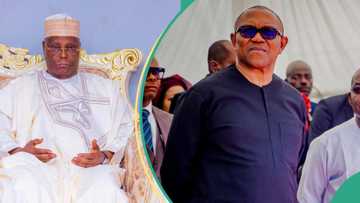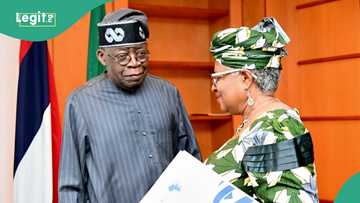Full List: 20 Reasons Nigerians Backed APC during By-Election and Why Tinubu May Win 2027 Election
- Nigerians overwhelmingly backed the APC in the August 16 by-election, with Reno Omokri citing President Tinubu’s reforms as the main driver of confidence
- Key achievements include economic stabilisation, higher GDP growth, a new minimum wage, consistent OPEC quota performance, tax reforms, and record power generation
- Improved living conditions, such as fuel self-sufficiency, student loans, safer roads, modernised airports, and debt reduction, are seen as paving the way for Tinubu’s re-election bid in 2027
Nigerians gave overwhelming support to the All Progressives Congress (APC) during the by-elections that took place on Saturday, August 16.
Former aide to ex-president Goodluck Jonathan, Reno Omokri, has pointed to numerous reforms and achievements of President Bola Ahmed Tinubu as key reasons for this confidence.
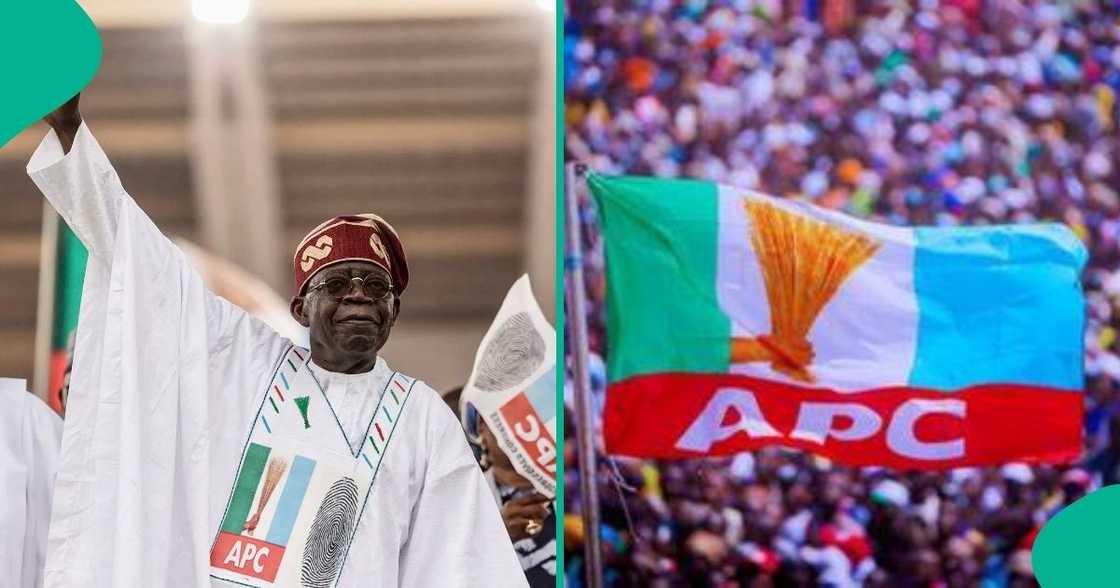
Source: Twitter
Legit.ng has compiled Omokri's list of 20 major reasons for the by-election victory and how these reasons would pave the way for Tinubu’s re-election in 2027:
1. Tinubu stabilised Nigeria’s economy
According to the director general of the World Trade Organisation, Dr Ngozi Okonjo-Iweala, President Tinubu has succeeded in stabilising Nigeria’s economy. This recognition from a global economic leader resonates strongly with Nigerians.
Her statement reflects international confidence, which many believe is a testament to Tinubu’s reforms. For voters, stability means hope for sustained growth and recovery.
2. Strong GDP growth achieved
Nigeria recorded 3.84% GDP growth in the fourth quarter of 2024, its highest in three years. For the entire year, growth stood at 3.4%, compared with 2.7% under the Buhari administration in 2023.
Although the opposition downplayed the impact, insisting “GDP growth rate no dey chop”, the truth remains that past declines triggered widespread complaints. Nigerians now see this as a positive turnaround.
3. New minimum wage signed into law
On July 29, 2024, President Tinubu signed the New Minimum Wage Bill into law, raising workers’ pay to ₦70,000. This was more than double the previous wage.

Read also
Apply: 3 job, loan opportunities recently shared by FG that youths, academics, others can put in for
For millions of Nigerian workers, this policy directly improved their quality of life. The measure also sent a clear signal that the government is attentive to labour welfare.
4. Nigeria met OPEC quota consistently
Nigeria has exceeded its OPEC oil production quota for three consecutive months, a feat not achieved in over a decade. This marked a significant boost for the oil sector.
The achievement demonstrated improved efficiency, security, and policy stability in the petroleum industry, which reassured investors and citizens alike.
5. Tax reform ushered in fairness
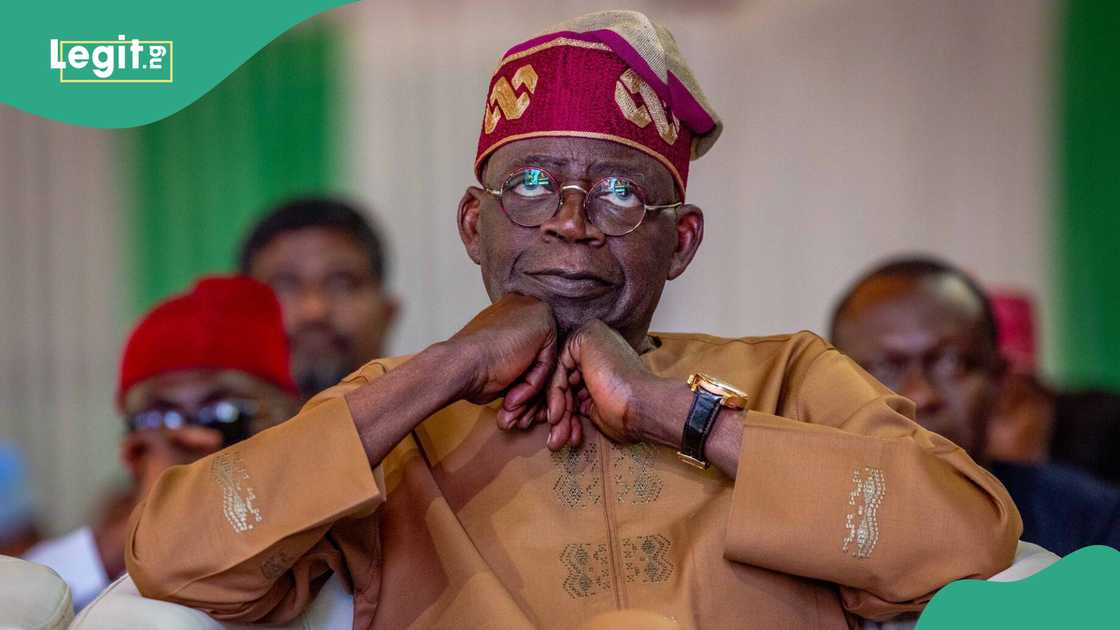
Source: UGC
On June 26, 2025, Tinubu signed the landmark Nigeria Tax Act and its associated Bills into law. The reforms were designed to bring prosperity, equity, and social security.
Observers have likened the reform’s impact to historic milestones in Nigeria’s governance. For many Nigerians, it represents the dawn of a fairer system.
6. Record-breaking electricity generation
On March 4, 2025, Nigeria hit a peak power generation record of 5,801.84MW and a daily energy output of 128,370.75MWh.
This was the highest figure in the country’s history, signalling tangible progress in addressing Nigeria’s chronic electricity challenges.
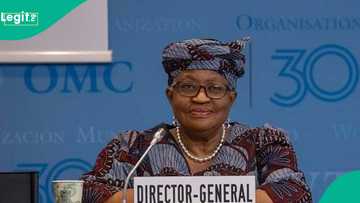
Read also
50m dollars global fund lands in Nigeria: Okonjo-Iweala backs women entrepreneurs in digital trade
7. Massive GDP expansion recorded
Nigeria’s GDP expanded by $67 billion since Tinubu assumed office. The economy grew from ₦269.29 trillion in May 2023 to ₦372.8 trillion by 2025.
This remarkable growth bolstered confidence and showcased the administration’s ability to grow the economy within a short time.
8. Record trade surplus achieved
Nigeria recorded a trade surplus of ₦16.89 trillion ($14 billion), the highest in its history. This reflected reduced import dependency.
For many Nigerians, this milestone meant the economy was becoming more self-reliant, with improved prospects for local industries.
9. Foreign reserves boosted
Due to naira floating and other reforms, foreign reserves rose to $40.877 billion. This was a major leap from the $3.7 billion inherited in 2023.
The increase provided confidence in Nigeria’s external stability and reassured both investors and citizens.
10. National debt reduced
Nigeria’s debt profile dropped from $108.2 billion in May 2023 to $94.2 billion. Only Obasanjo’s and Tinubu’s governments have ever achieved debt reduction.
This rare fiscal achievement was celebrated as proof of prudent management in an era of global debt crises.
11. Local Government autonomy implemented
For the first time in years, Local Governments have begun operating with true independence from state Governors.
This reform has started restoring grassroots governance, enabling citizens to benefit directly from federal resources.
12. Student loan scheme benefitted 600,000
Over 600,000 students, many from Northern Nigeria, have accessed the Student Loan scheme introduced by Tinubu.
The policy opened doors for young Nigerians, particularly from poor families, and strengthened faith in the government.
13. Universities free from strikes
For two years of Tinubu’s administration, universities have remained open. The dreaded ASUU strikes have been absent.
Students and parents alike consider this an unprecedented relief, ensuring steady academic calendars.
14. Fuel scarcity eliminated
Nigeria, once Africa’s largest fuel importer, is now self-sufficient and exports refined products across West Africa.
This achievement ended years of hardship at filling stations, boosting public trust in Tinubu’s reforms.
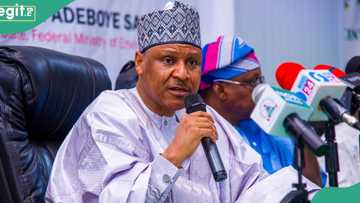
Read also
"It can now be done here": Tinubu's minister announces latest treatment breakthrough in Nigeria
15. Abuja-Kano road made safe
The Abuja-Kano road, once notorious for kidnappings, has been secured under the watch of NSA Nuhu Ribadu.
Travellers now ply the road with confidence, marking a strong victory against insecurity.
16. Passport issuance improved
Passport delays are now history. Nigerians now obtain passports within two weeks or less.
This reform ended frustration for millions, especially those travelling for business, education, or medical reasons.
17. Abuja airport modernised
Nnamdi Azikiwe International Airport has been transformed into one of Sub-Saharan Africa’s most modern facilities.
Passengers now experience seamless, fully electronic travel processes without human interference.
18. Niger Delta stability restored
Oil theft in the Niger Delta has reduced to 2%. Peace and development have returned, with a new polytechnic underway in Ogoniland.
The ongoing cleanup project has further reassured communities that their grievances are being addressed.
19. IMF upgraded Nigeria’s outlook
On July 29, 2025, the IMF upgraded Nigeria’s growth forecast from 3.0% to 3.4%.
This international validation highlighted the global recognition of Tinubu’s reforms.
20. Fitch and Moody’s ratings improved
Fitch upgraded Nigeria to a Stable B, while Moody’s lifted it to B3 from Caa1. These were major votes of confidence from top global rating agencies.
For many Nigerians, this meant the international community was acknowledging economic recovery, strengthening the case for APC in future elections.
Tinubu approves subsidy for kidney treatment
Previously, Legit.ng reported that President Bola Tinubu approved a subsidy on the cost of kidney dialysis sessions to ease the financial burden on Nigerian patients.
Sunday Dare, the president's aide, disclosed the development in a tweet on Monday, August 18, 2025.
He explained that the subsidy would initially take effect in 10 public hospitals, with the programme aimed at providing relief to thousands of Nigerians battling kidney-related diseases.
Source: Legit.ng

